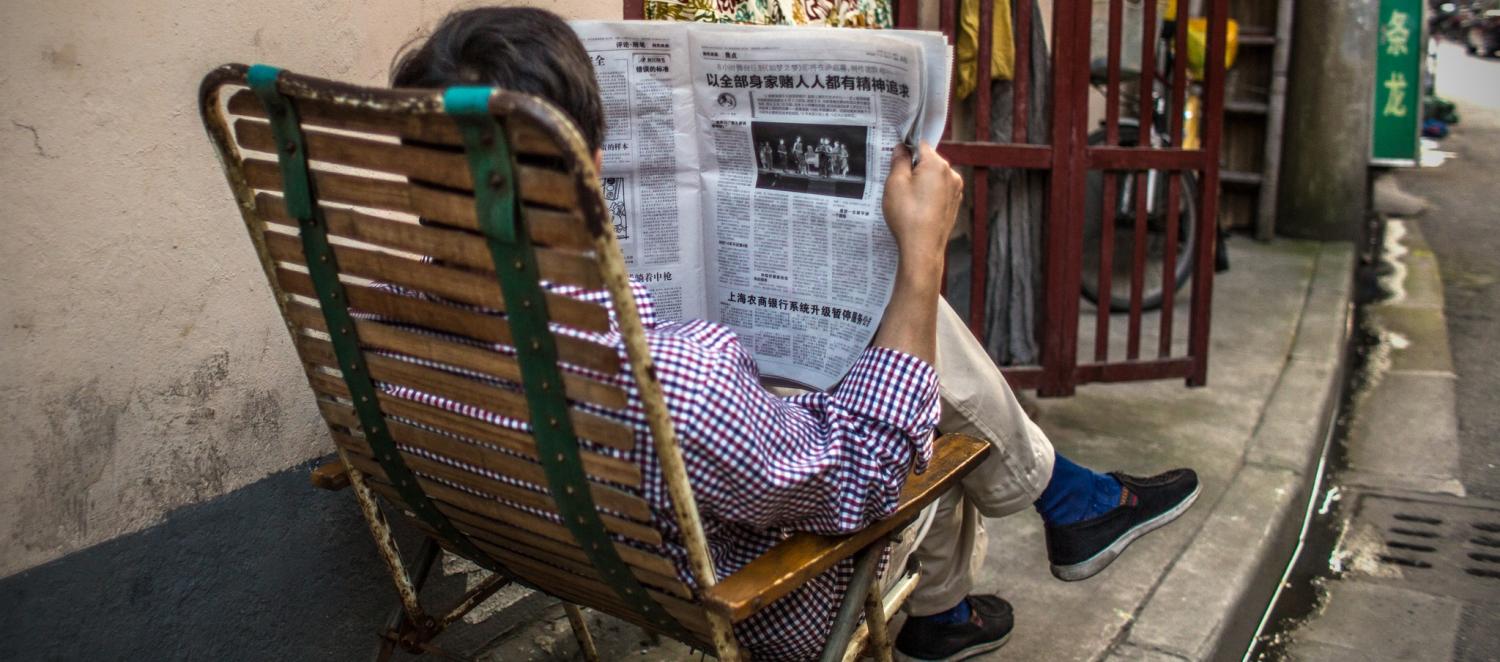President-elect Donald Trump’s unexpected victory over Hillary Clinton was a tragedy for America’s political institutions. But for Beijing, Trump’s big win on Tuesday was also the culmination of the Chinese state-media’s year-long campaign to mock and discredit American democracy.
Yesterday morning, state-owned media outlets congratulated Trump on the election result, but also noted that the underqualified businessman had brought great uncertainty to the future of the US and international relations.
The People’s Daily, mouthpiece for the Chinese Communist Party, questioned Trump’s ability to follow through with his agenda. An editorial in the tabloid Global Times speculated that Trump would find it difficult to negotiate with the Washington elites so derided during his campaign, resulting in a weak and constrained presidency.
State-run outlets have often raised doubts over Trump’s ability to lead. Back in March, the Global Times compared him to Adolf Hitler and Benito Mussolini, fascist leaders elected by democratic governments. The editorial condemned his ‘abusively racist and extremist remarks’ which would only exacerbate deep racial tensions within American society. His controversial statements and behaviour quickly earned him the epithet ‘big-mouthed.’ As each of his scandals came to light, the state media double downed on its message that this is the type of inexperienced and undesirable leader that Western democracy produces.
Of course, Trump’s Democratic opponent didn’t fare any better in the Chinese press. From the outset of the race, Clinton was described as a hawk who would ‘spare no effort to contain China’s rise.’ It was as Secretary of State under the first Obama Administration that Clinton pushed for the US pivot to the Asia, much to Beijing’s chagrin. Her tough stance on security issues and human rights earned her a reputation for being ‘fiercely anti-China.’
But whereas Clinton was a predictable evil which could be managed, Trump is considered ‘volatile’ and ‘unpredictable’, less than desirable traits when it comes to handling great-power relations.
The unprecedented unpopularity of both candidates and a raft of political scandals this year also served as ammunition for Beijing’s anti-democracy narrative. In early October, an authoritative article in the People’s Daily argued that this election ‘highlighted not only the embarrassment of American politics, but also the corrupt practices of the US political system.’ It demanded that the US ‘take a close, honest look at its arrogant democracy and flawed politics.’
Similar articles were featured in the Global Times. One article claimed that the election ‘exposed the institutional maladies of American democracy.’ ‘“Trump-ism” has irretrievably damaged the international image of the United States,’ said a senior editor of the People’s Daily. It had lost all legitimacy to promote liberal democracy to the developing world.
Chinese criticism of the American political system is nothing new. The negative influence of big money in politics has been a recurring theme throughout Obama’s two terms in office. But this is the first presidential race since Xi Jinping came to power in 2012, and the first since his Chinese Dream became a mainstay of Chinese political discourse. In depicting American democracy as chaotic and dysfunctional, the state media has sought to bolster its narrative of domestic stability.
The American population was constantly portrayed as deeply divided and frustrated with a fundamentally broken system. Xi’s China is presented as a superior alternative: a unified people march towards the goal of national revitalisation with a confident Communist Party at the helm. Coverage on social media of recent protests in New York and California has served to reinforce the state’s message that Western democracy leads to chaos and division, and that it cannot be applied to China.
As for the future of US-China relations, news outlets have sought to project a calm confidence. In the early hours of election day, the Global Times encouraged its readers to remain optimistic, claiming in Marxist tradition that ‘individuals cannot alter the grand trends in US-China relations.’ No matter who ended up in the White House, bilateral cooperation between the two great powers would not be greatly affected.
Of course, it’s still too early to say what China policy will look like under Trump. There are too many unknowns at work and his views on key issues pertaining to security and foreign policy remain elusive. Much will depend on the selection of his team.
But China’s policy circles are cautiously optimistic about a Trump presidency. It is expected that geopolitical pressure will take a back seat to economics and trade. Trump’s transactional approach to US alliances with Japan and South Korea and a potential revival of isolationism would have profound implications for China’s role in the Asia Pacific. The current debate in Beijing’s policy community is whether China should adopt a wait-and-watch approach, or whether it should seize this opportunity to be more ambitious and involved in international affairs.
It is also unclear how the state media will adapt once the president-elect takes office. A sharp reversal may occur where state-owned outlets flatter a narcissistic Trump, attempting to replicate the success of their Russian counterparts. What is more certain, however, is that domestic audiences will continue to be warned about the supposed perils and pitfalls of Western democracy. The 2016 race will likely prove a key example for the Communist Party’s narrative whenever it seeks to reaffirm its domestic legitimacy.
Photo by Flickr user Blake Thornberry.
